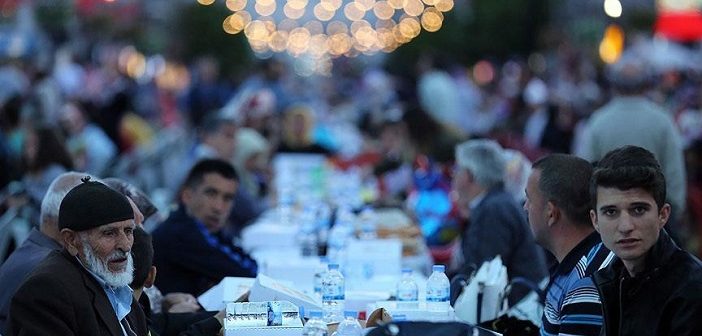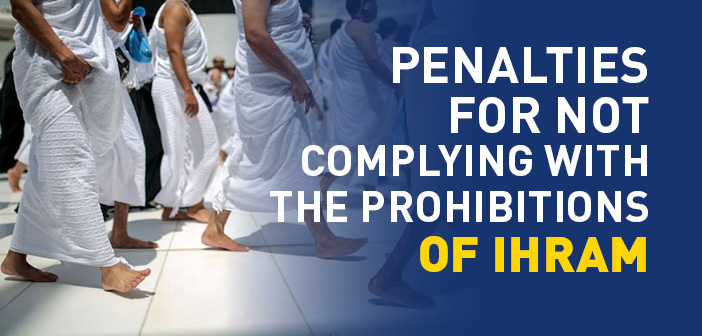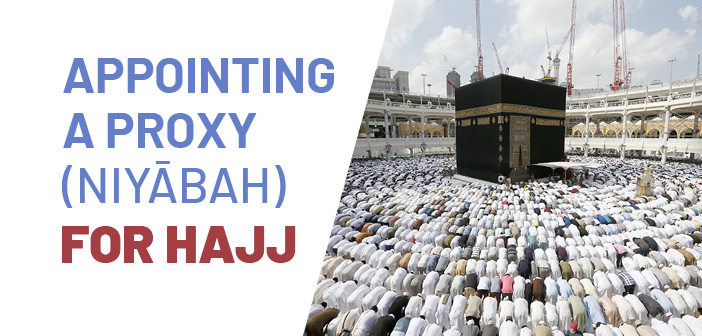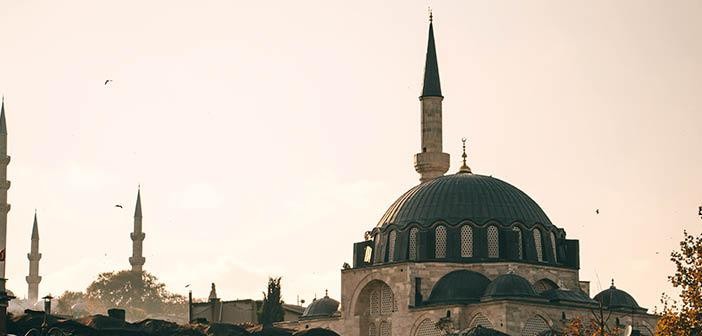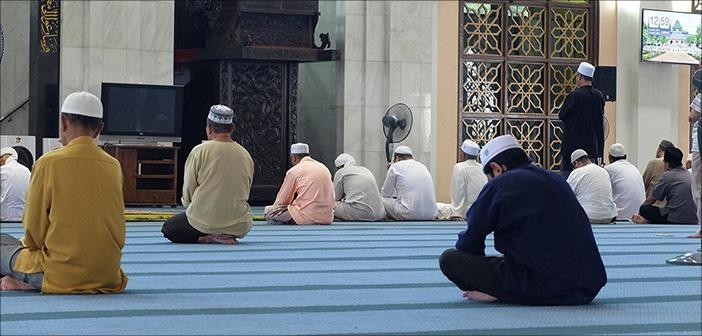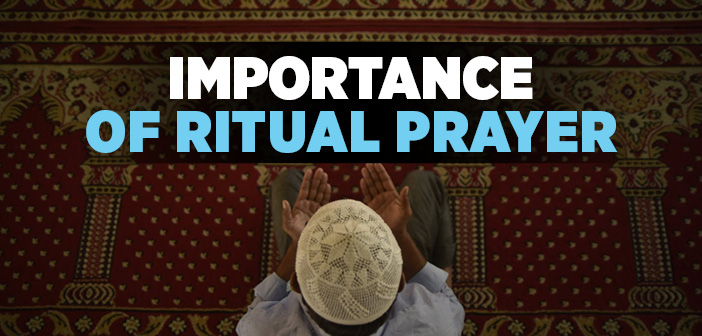
Importance of Ritual Prayer
What is the ritual prayer? What is the importance of ritual prayer?What does ritual prayer mean in islam?
A) Definition and History of Prayer:
Every act and behavior of a believer that pleases Allah is considered an act of worship in general. Almighty Allah has created humans and jinn so that they can know Him, and worship only Him.[1] In a distinctive sense, worship is divided into three types based on whether it is performed with the body, with wealth, or with both. Prayer and fasting are acts of worship performed with the body, zakāt is with wealth, and pilgrimage is done with both wealth and the body. The amounts and forms of such acts of worship were determined by Allah and His Messenger. These acts of worship, which are mentioned in the Qur’an in a short narrative (mujmal), are explained and completed with the words and actions of the Prophet (saw). Therefore, the Muslim community has no right to offer interpretations and make changes to them by using their independent reasoning. In fact, that the determined way of the Messenger of Allah (saw) is to be followed in this matter is demonstrated by his various hadiths such as, “Perform your prayers as you see me performing them”, and “Take the rituals of pilgrimage from me.”
Ritual prayer (ṣalāh) is the greatest and most important one of the obligatory acts of worship. On the Day of Judgment, prayer will be the first matter after the belief that people will be questioned. Prayer is one of the most important manifestations of faith and its reflection is to be found in society. Prayer is the light and the joy of the heart, the nourishment of the soul, the believer’s ascension, and the state of meeting and talking with the Supreme Creator.
Ṣalāh lexically means to invoke, to praise, to glorify, and to pray. Allah Almighty says in a Qur’anic verse, “(O Muhammad!) Pray for them: behold, your prayer will be [a source of] comfort to them.”[2] In Islamic legal terminology, ṣalāh is an act of worship consisting of special actions and words that start with takbīr and end with a greeting.
It is stated in various verses of the Qur’an that ṣalāh was commanded in the monotheistic religions before Islam. Namely, when Abraham (as) took his wife Hagar and son Ismail to Hejaz and left them there, he prayed to Almighty Allah saying, “O our Lord! I have made some of my offspring to dwell in a valley without cultivation, by Your Sacred House; in order, O our Lord, that they may establish regular Prayer...”[3] and again, “O my Lord! make me one who establishes regular Prayer, and also (raise such) among my offspring O our Lord! And accept You my Prayer.”[4] In the Qur'an, it was also stated that Isaac and Yaqub were given to Abraham as an additional blessing, and it was revealed that doing good, performing prayers, and paying zakāt were revealed to all of them;[5] Luqman (as) advised his son, Taran, with the following words. “O, my son! Establish regular prayer, enjoin what is just, and forbid what is wrong: and bear with patient constancy whatever betide you; for this is firmness (of purpose) in (the conduct of) affairs.”[6] He received a promise from the Children of Israel that they would “pray and give alms.”[7] After Moses was commanded in the revelation he received on Mount Sinai with the following words, “.So serve thou Me (only), and establish regular prayer for celebrating My praise.”[8] Allah Almighty addressed Moses and his brother Aaron specifically and said, “Provide dwellings for your people in Egypt, make your dwellings into places of worship, and establish regular prayers: and give glad tidings to those who believe!”[9] In another verse, the Prophet Shuʿayb’s prayer was revealed[10] and so was the miracle of Prophet Jesus speaking in the cradle as an infant saying, “I am indeed a servant of Allah: He has given me revelation and made me a prophet; And He has made me blessed wheresoever I be, and has enjoined on me Prayer and Charity as long as I live.”[11] God Almighty spoke to Mary saying, “O Mary! worship Your Lord devoutly: Prostrate yourself, and bow down (in prayer) with those who bow down.”[12] All these Qur’anic verses demonstrate that prayer was a common worship of all of the Abrahamic religions.
In the early years of the Meccan period, Gabriel (as) came to the Prophet Muhammad (saw) and transferred him to a place called Aqaba on the valley side, where first Gabriel and then the Prophet Muhammad performed ablution with the gushing water and they performed two cycles of prayer together. The Prophet (saw) came back to his house in an exultant state. Afterward, with his wife Khadija, they performed ablution there together and prayed two cycles of prayer.[13] According to some scholars, the following Qur’anic verses are about this period when prayer used to be performed secretly. “…Neither speak your Prayer aloud, nor speak it in a low tone, but seek a middle course between.”[14], and “And do you bring your Lord to remembrance in your (very) soul, with humility, and in reverence, without loudness in words, in the mornings and evenings; and be not you of those who are unheedful.”[15] In the early years of Islam, the ritual prayer was performed in two cycles only twice a day, before sunrise in the morning and after sunset in the evening. Then, on the night of Ascension (Miʿraj) five daily prayers were made obligatory. According to a collective conviction, it was the day after the Ascension that Gabriel (as) led the Prophet in a ritual prayer, which was performed in the Ka’ba to illustrate the prayer times.
B) The Evidence on The Ritual Prayer
The obligation (farḍ) of the prayer is based on the evidence from the Qur’an, Sunnah, and the consensus of the Muslim jurists.
The word ṣalāh is used in the singular form in 78 verses in the Qur’an, meaning invocation and ritual prayer, and in the plural form as “ṣalawāt” in 5 verses. It is used in the form of “those who pray (muṣallīn)” in 3 verses. On the other hand, “perform the prayer” is used in 14 verses through the plural imperative, and in 4 verses in the singular imperative form, “perform prayer”. “Those who pray” are mentioned in 24 verses in the past tense. The subject of prayer and invocation is also mentioned in about 10 verses with the verb “ṣallā (prayed, performed prayer)”.[16] The fact that prayer is mentioned in many hadiths with similar words reveals the importance of this act of worship. We will give the meaning of a few verses below as an example: “Surely, prayers are enjoined on believers at stated times.”[17]; “And they have been commanded no more than this: To worship Allah, offering Him sincere devotion, being true (in faith); to establish regular prayer; and to practice regular charity; and that is the Religion Right and Straight.”[18]; “So establish regular Prayer, give regular Charity, and hold fast to Allah! He is your Protector - the Best to protect and the Best to help!”[19], and “Guard strictly your (habit of) prayers, especially the Middle Prayer...”[20]
The evidence from the Sunnah is there are many hadiths narrated on this subject. Some of these hadiths are:
According to what is reported from Abdullah Ibn Umar (ra), the Prophet (saw) said: “Allah’s Messenger (saw) said: Islam is based on five (principles): To testify that none has the right to be worshipped but Allah and Muhammad is Allah’s Messenger (saw), to offer the (compulsory congregational) prayers dutifully and perfectly, to pay Zakāt (i.e. obligatory charity), to perform Hajj. (i.e. Pilgrimage to Mecca) and to observe fast during the month of Ramadan.”[21]
When the Prophet (saw) was sending Muadh ibn Jabal (ra) to Yemen, he said to him: “You will go to the people of the Scripture. So, when you reach there, invite them to testify that none has the right to be worshipped but Allah and that Muhammad is His Apostle. And if they obey you in that, tell them that Allah has enjoined on them five prayers in each day and night. And if they obey you in that tell them that Allah has made it obligatory on them to pay the Zakāt, which will be taken from the rich among them and given to the poor among them. If they obey you in that, then avoid taking the best of their possessions, and be afraid of the curse of an oppressed person because there is no screen between his invocation and Allah.”[22]
The Muslim Ummah is in unanimous agreement that it is obligatory to pray five times a day and a night.
It is proven by sound reports that prayer was made obligatory on the night of Miʿraj before the Hijra.[23] In a hadith narrated by Anas (ra), the following is reported, “On the Night of Isra, fifty prayers were made obligatory upon the Prophet. Then they were decreased until they became five. Then it was announced, ‘O Muhammad! Indeed My Word does not change; these five prayers will be recorded for you as fifty.’”[24]
Bukhari and Muslim have the following narration:
“Allah made fifty prayers obligatory on my followers on the night of Miʿraj. I asked Him for a reduction. Finally, He reduced the prayer to five times for a day and a night.”[25]
The following two hadiths indicate the importance of prayer, “Prayer is the pillar of religion.”[26], and “Prostration in prayer is the closest state that a servant is to Allah.”[27]
Prayer is obligatory for every sane male and female Muslim who has reached puberty. However, children who have reached the age of seven are also directed to pray. If they do not pray by the age of ten, they should be reprimanded, and even slightly smacked in order for them to be instructed. The Prophet said: “Command your children to pray when they become seven years old, and beat them for it (prayer) when they become ten years old; and arrange their beds (to sleep) separately.”[28]
The number of obligatory prayers in one day and a night is five. According to the Ḥanafis, only the ritual prayers, witr or Eid prayers are wājib. The following hadith reported about a Bedouin is evidence for these five obligatory prayers: The Messenger of Allah said: “The obligatory prayers in one day and one night are five.” When a Bedouin who was present there asked, “Is there any other (prayer) upon me?”, the Messenger of Allah replied: “No, if you want to offer supererogatory ones, this is an exception.”[29] Thereupon the Bedouin said, “I swear by Allah, Who sent you with the truth, that I will neither do more nor less than that.” Thereupon, the Prophet (saw) said: “If he is telling the truth, this man is saved.”[30]
C) Benefits of Prayer
The prayer has been prescribed as a form of gratitude for the countless blessings that Allah has given. Prayer has many religious, individual, social, and pedagogical benefits:
1) Religious Benefits of Prayer
The prayer establishes a bond between Allah and the servant. This bond is the pillar and foundation of religion. It is established by the Qur’anic verses and hadiths that the minor sins of those who perform the five daily prayers on time in accordance with their pillars and conditions will be forgiven due to their renouncement of major sins. The following is stated in the Qur’an on this matter, “(O Muhammad!) Recite what is sent of the Book by inspiration to you, and establish regular Prayer: for Prayer restrains from shameful and unjust deeds; and remembrance of Allah is the greatest (thing in life) without doubt. And Allah knows the (deeds) that you do.”[31], and “The believers must (eventually) win through, those who humble themselves in their prayers.”[32]
The Prophet asked, “If there was a river at the door of anyone of you and he took a bath in it five times a day would you notice any dirt on him?” The Companions said: “No, the dirt would not remain”. Thereupon, the Messenger of Allah (saw) said, “That is the example of the five prayers with which Allah blots out (annuls) evil deeds.”[33] In another hadith in which prayers are called as an expiation for all sins other than the major sins, the following is stated, “As long as no major sins are committed, the five (daily) prayers and one Friday prayer to (the next) Friday prayer are expiations (for the sins committed in the intervals) between them.”[34]
2) Individual Benefits of Prayer
The prayer brings the servant closer to God. It strengthens both the spirit and the will of the believer. It makes a person get used to patience and gratitude. A believer who prays at regular intervals every day will be protected from the greediness, evil, and ostentation of the world. A prayer performed with faith and awe leads to the development of sincerity, piety, and good character.
The following is stated in the Qur’an, “Nay, seek (Allah’s) help with patient perseverance and prayer: It is indeed hard, except to those who bring a lowly spirit.”[35] The Prophet (saw) said in a hadith, “In this world, women and perfume have been made dear to me, and my comfort has been provided in the prayer.”[36] Moreover, it is narrated that during his time of sorrow and grief, in order to attain peace and tranquility, the Messenger of Allah (saw) would say, “O Bilal, get up, call the adhān, let us pray and find peace.”[37]
3) Social Benefits of Prayer
Prayer, regardless of race, color, language, and country, gathers believers in one row and strengthens the consciousness of society. It realizes social solidarity and ensures the unity of the community. It makes all believers one united society against disbelief.
The mosques, where prayers are performed in the congregation, form an infrastructure in terms of cooperation, solidarity, and organization among the people. It is spoken of in the Qur’an as, “…Help you one another in righteousness and piety, but help you not one another in sin and rancor: fear Allah for Allah is strict in punishment.”[38] The Messenger of Allah (saw) also said, “A faithful believer to a faithful believer is like the bricks of a wall, enforcing each other.”[39]
D) Provision for Not Performing The Prayer
There is consensus among the Muslim jurists that prayer is obligatory for every Muslim who is adolescent, sane, and has been ritually purified of menstruation and puerperium. In bodily acts of worship such as prayer and fasting, appointing regent and agent are not valid. In other words, one cannot pray or fast on behalf of another. Whoever denies the fact that prayer is farḍ renounces his or her religion. This is because prayer is prescribed by definite Qur’anic verses, hadiths, and the consensus of Muslim jurists. One who abandons the prayers due to laziness or indifference is considered a sinner.
Failure to perform prayer instigates torment in this world and in the hereafter. Regarding the torment in the Hereafter, Allah Almighty says the following, “(They will be) in Gardens (of Delight): they will question each other, And (ask) of the Sinners: “What led you into Hell Fire?” They will say: “We were not of those who prayed”[40]; “But after them there followed a posterity who missed prayers and followed after lusts soon, then, will they face Destruction, except those who repent and believe, and work righteousness: for these will enter the Garden and will not be wronged in the least”[41]; and “So woe to the worshippers who are neglectful of their prayers.”[42] Moreover, the Prophet said the following, “The protection of Allah and His Messenger will be removed from a person who deliberately abandons the prayer.”[43], “Whoever abandons the afternoon prayer, his deeds will be in vain.”[44], and “Whoever neglects the three Friday prayers, Allah will seal his heart.”[45]
According to the Ḥanafis, a person who abandons his prayer due to laziness or idle reasons does not renounce his or her religion but is considered a person who has sinned. The exception is if such a person denies the legitimacy of the prayer. Otherwise, a person missing his or her prayer should be advised about this issue and called to repent. Traditionally, such a person would have been isolated from society so that he or she does not continue to set a bad example. The person who abandons the fast of Ramadan would have been subject to a similar punishment.[46] According to the imams of the schools other than the Ḥanafis, a person who abandons his prayer without an excuse is deemed to have opposed the Muslim community, as is the case of the apostate, and if he or she does not repent, he or she is penalized most severely.[47]
Those who cannot perform their prayers on time due to forgetting, falling asleep or laziness are expected to make it up later. It is stated in a hadith, “Whoever forgets prayer or sleeps and misses it, he performs it when he remembers it.”[48] According to the majority of jurists, if making up the prayers is required for a person who cannot perform his prayer on time due to an excuse such as sleeping or forgetting, it must be a stronger requirement to make up for it for the person who does not perform it without an excuse but due to laziness. It is argued that such a person since he could not perform the prayer on time should also repent and seek forgiveness from Allah. It is reported that Allah Almighty can forgive all sins other than associating partners with Him if He wishes. There are various textual proofs about the scope of this forgiveness, which can also include the abandonment of prayer.
The following is stated in the Qur’an, “Allah forgives not that partners should be set up with Him; but He forgives anything else, to whom He pleases...”[49]
In a hadith narrated by Ubadah Ibn Samit (ra), the following is stated, “There are five prayers which Allah has prescribed on His servants. If anyone offers them, not missing any of them, and not treating them lightly, Allah guarantees that He will admit him to Paradise. If anyone does not offer them, Allah does not take any responsibility for such a person. He may either punish him or admit him to Paradise.”[50] In another hadith narrated by Abu Hurayra (ra), the following is stated. “The first thing about which the people will be called to account out of their actions on the Day of Judgment is prayer. Our Lord, the Exalted, will say to the angels - though He knows better: Look into the prayer of My servant and see whether he has offered it perfectly or imperfectly. If it is perfect, it will be recorded as perfect. If it is defective, He will say: See there are some optional prayers offered by My servant. If there are optional prayers to his credit, He will say: Compensate the obligatory prayer by the optional prayer for My servant. Then all the actions will be considered similarly.”[51]
Therefore, sunnah and other supererogatory prayers make up for the lack of obligatory prayers. For this reason, it should be the aim of the believer to perform prayers without making any distinction between farḍ, wājib, or sunnah. For this reason, besides being a source of worldly peace and spiritual happiness, it will also be the greatest provision for the journey to the hereafter.
[1] Al-Dhariyat, 51: 56.[2] Al-Tawba, 9: 103.[3] Ibrahim, 14: 37.[4] Ibrahim, 14: 40.[5] Al-Anbiya, 21: 72, 73.[6] Luqmān, 31: 17.[7] Al-Baqara, 2: 83.[8] Ṭa Ha, 20: 14[9] Yunus, 10: 87.[10] Hūd, 11: 87.[11] Maryam, 19: 30-31.[12] Āl Imrān, 3: 43.[13] Komisyon, Ilmihal, T.D.V. publications, I, 219.[14] Al-’Isrā, 17: 110.[15] Al-Aʿrāf, 7: 205.[16] M. Fuad ʿAbd al-Baqi, al-Mu’jam al-Mufahras li Alfaẓ al-Qur’ān al-Karīm, “Ṣalāh”, “Ṣallā”, “Qāma” and “Aqāma”.[17] Al-Nisā, 4: 103.[18] Al-Bayyina, 98: 5.[19] Al-Ḥajj, 22: 78.[20] Al-Baqara, 2: 238.[21] Al-Bukhari, Imān, 1, 2; Muslim, Imān, 19-22.[22] Buhari, Zakāt, 41, 63, Maghāzī, 60, Tawḥīd, 1; al-Nasā’ī, Zakāt, 1; al-Darimī, Zakāt, 1.[23] Al-Bukhari, Ṣalāh, 1; Muslim, Imān, 263.[24] Al-Tirmidhī, Ṣalāh, 45; al-Nasā’ī, Ṣalāh, 1, Aḥmad ibn Ḥanbal, III, 161, IV, 208, 209.[25] Al-Bukhari, Ṣalāh, 1; Muslim, Iman 263; Ibn Maja, ‘Iqāmah, 194; Aḥmad ibn Ḥanbal, V, 144.[26] Al-Tirmidhī, Imān, 8; Aḥmad ibn Ḥanbal, V, 231, 237.[27] Muslim, Ṣalāh, 215; Al-Nasā’ī, Mawāqīṭ, 35.[28] Abū Dawūd, Ṣalāh, 26; Aḥmad ibn Ḥanbal, II, 180, 187.[29] Al-Bukhari, Imān, 34, Ṣawm, 1, Shahadāt, 26; Muslim, Imān, 8; Abū Dawūd, Ṣalāh, 1.[30] Al-Bukhari, Imān, 34; Shahadāt, 26; Muslim, Imān, 8, 10, 15, 17, 18; Abū Dawūd, Ṣalāh, 1.[31] Al-Ankabūt, 29: 45.[32] Al-Mu’minūn, 23: 1-2.[33] Al-Bukhari, Mawāqīṭ, 6; Muslim, Masājid, 283; al-Tirmidhī, Adab, 80, 90; Al-Nasā’ī, Ṣalāh, 7; Ibn Maja, ‘Iqāmah, 193.[34] Muslim, Ṭaḥāra, 14, 15; Al-Tirmidhī, Mawāqīṭ, 46; Ibn Maja, Ṭaḥāra, 79, 106; Aḥmad ibn Ḥanbal, II, 229, 359, 400.[35] Al-Baqara, 2: 45.[36] Al-Nasā’ī, ‘Ishrat al-Nisā, 1; Aḥmad ibn Ḥanbal, III, 128, 199, 285.[37] Aḥmad ibn Ḥanbal I, 206, 268, 280, V, 388; al-Nasā’ī, Mawāqīṭ, 46.[38] Al-Mā’ida, 5: 2.[39] Al-Bukhari, Ṣalāh, 88, Maẓalim, 5; Muslim, Birr, 65; al-Tirmidhī, Birr, 18; al-Nasā’ī, Zakāt, 67.[40] Al-Muddaththir, 74: 40-43.[41] Maryam, 19: 59-60.[42] Al-Maūn, 107: 4-5.[43] Aḥmad ibn Ḥanbal, V, 238, VI, 461.[44] Al-Bukhari, Mawāqīṭ, 15, 34; Al-Nasā’ī, Ṣalāh, 15.[45] Al-Nasā’ī, Jumʿa, 2; Al-Tirmidhī, Jumʿa, 7; Ibn Maja, ‘Iqāmah, 93.[46] Ibn Abidin, Radd al-Mukhtār, Egypt, n.d., I, 326; Al-Shurunbulālī, Marāq al-Falaḥ, Egypt, 1315, p. 60; al-Zuhaylī, al-Fiqh al-Islamī wa Adillatuh, Damascus 1985, I, 503.[47] Ibn Rushd (Averroes), Bidāyat al-Mujtahid, Egypt, n.d., I, 87; al-Shirazī, Muhadhdhab, Aleppo ed, I, 51; Ibn Qudāmah, Mughnī, 3rd ed., Cairo, n.d., II, 442-447; al-Zuhaylī, ibid, I, 503, 504; Cf. al-Tawba, 9: 5; al-Bukhari, Diyāt, 6; Muslim, Qasāma, 25, 26[48] Abū Dawūd, Ṣalāh, 11; Ibn Maja, Ṣalāh, 10, al-Nasā’ī, Mawāqīṭ, 53.[49] Al-Nisā, 4: 48.[50] Abū Dawūd, Witr, 2; al-Nasā’ī, Ṣalāh, 6; al-Darimī, Ṣalāh, 208; Malik, Muwaṭṭā’, Ṣalāt al-layl, 14.[51] Al-Tirmidhī, Ṣalāh, 188; Abū Dawūd, Ṣalāh, 145; Al-Nasā’ī, Ṣalāh, 9; Tahrim, 2; Ibn Maja, ‘Iqāmah, 202.
Source: Basic Islamic Principles (ilmiḥal) According to the Four Sunni Schools With Evidence From The Sources of Islamic Law, Prof. Hamdi Döndüren, Erkam Publications


